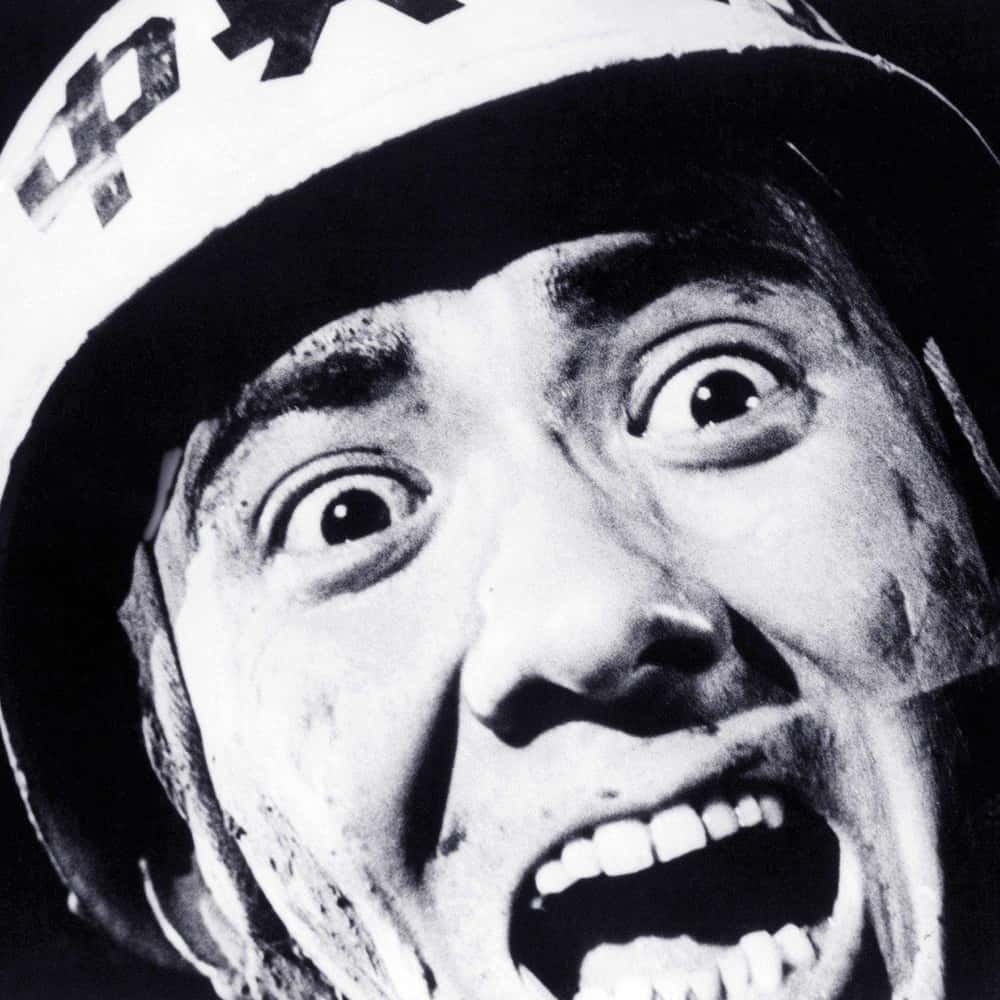Some of them shocked audiences with their themes, their visuals, or the questions they dared to ask—and they definitely didn’t hold back. From deeply disturbing horror flicks to daring political dramas and surreal experimental projects, these movies didn’t just entertain.
They sparked debates, sparked outrage, and in many cases, triggered heavy censorship or even bans in certain countries. Filmmakers like Takashi Miike, Nagisa Oshima, and Sion Sono have made names for themselves by pushing past conventional limits and shining a harsh light on topics like violence, power, sexuality, and the unspoken parts of society.
Even though these films may not be everyone’s cup of tea, many are still praised for their artistic depth and cultural impact. The controversy, in some cases, is exactly what made them unforgettable.
A Scandalous Tale: ‘In the Realm of the Senses’
The Controversy:
Nagisa Oshima’s In the Realm of the Senses remains a notorious Japanese film. Based on the real story of Sada Abe, it includes unsimulated sex scenes between the lead actors. Oshima had to sneak the undeveloped footage to France to finish the film, dodging Japanese censors. The explicit content got it banned or heavily censored in several countries, like Japan, the U.S., and Germany.
At the 1976 Cannes Film Festival, demand for the film was so intense that organizers set up a record 13 screenings. Even with all its controversy, it’s often seen as an important artistic piece that looks at themes like sexuality, obsession, and death in Japanese society.
What The Movie Is About:
A former prostitute (Eiko Matsuda), now working as a servant, begins a torrid affair with her married employer (Tatsuya Fuji).
- Actors: Tatsuya Fuji, Eiko Matsuda, Aoi Nakajima, Yasuko Matsui, Meika Seri
- Released: 1976
- Directed by: Nagisa Ôshima
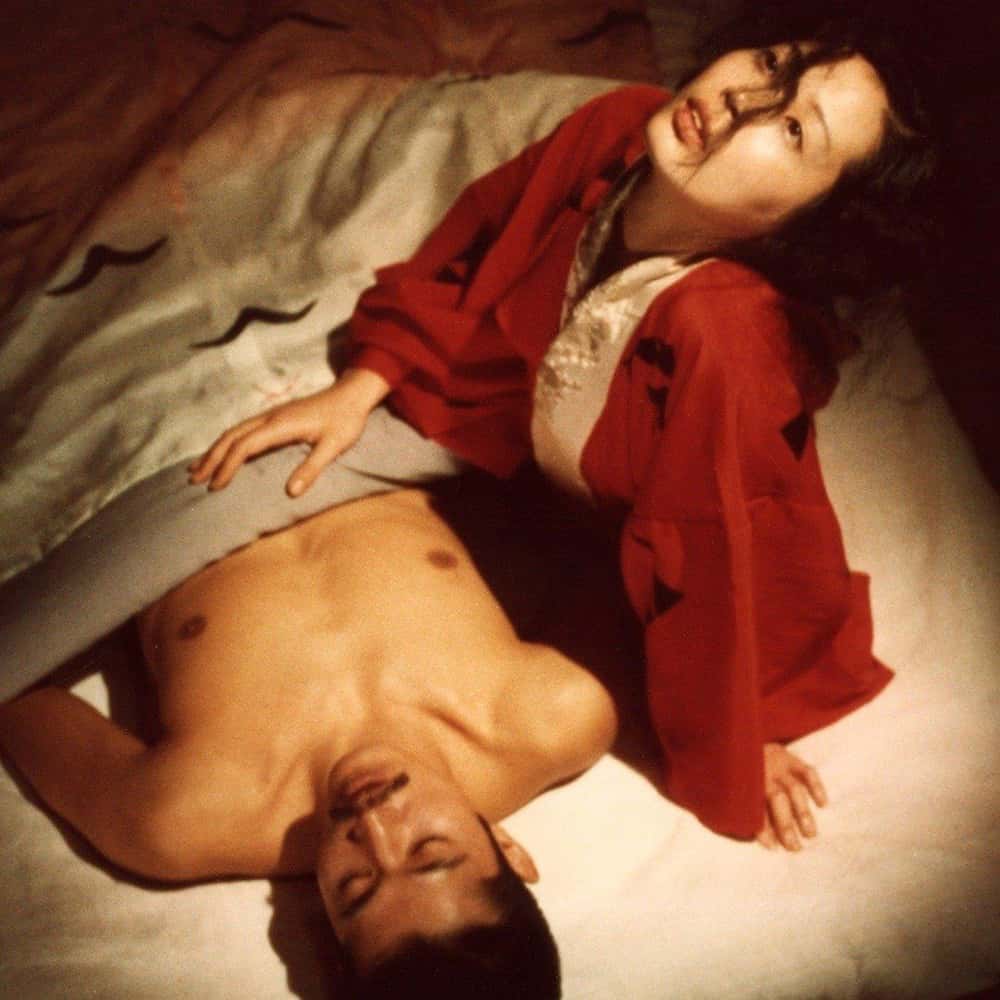
Family Chaos Explored: ‘Visitor Q’
The Controversy:
Takashi Miike’s Visitor Q is often seen as one of his most extreme films. It’s shot on digital video with a home movie vibe and follows a dysfunctional family whose lives are upended by a mysterious visitor. The film doesn’t shy away from graphic depictions of incest, necrophilia, lactation fetishism, drug use, and murder.
The low-budget, documentary-style feel makes its boundary-pushing content even more unsettling. Despite its shock factor, Visitor Q has been viewed as a dark satire on Japanese family values and the moral decline of contemporary society. Because of its controversial content, the film is still hard to find in its uncut form in many places.
What The Movie Is About:
A stranger (Kazushi Watanabe) befriends a family comprising a sexually deviant father (Kenichi Endo), an abused mother (Shungiku Uchida), a bullied son and a daughter who prostitutes herself.
- Actors: Shungiku Uchida, Kenichi Endo, Kazushi Watanabe, Shôko Nakahara, Jun Muto
- Released: 2001
- Directed by: Takashi Miike
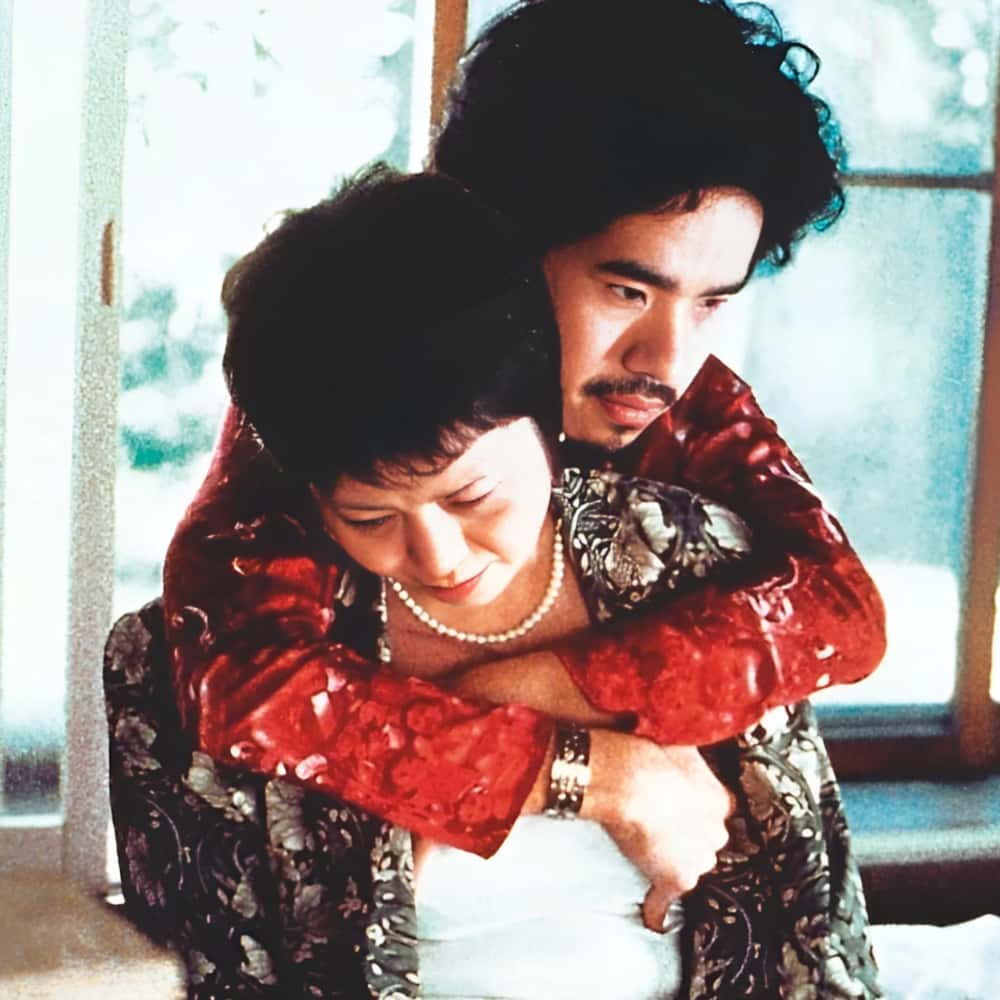
A Provocative Revolution: ‘Emperor Tomato Ketchup’
The Controversy:
Shuji Terayama’s avant-garde film Emperor Tomato Ketchup presents a surreal world where children have overthrown adults and taken charge, subjecting them to humiliation and punishment. The film’s dreamlike sequences include scenes of nudity and simulated sexual activity involving children, which Terayama argued were symbolic of oppression.
These controversial elements have led to frequent bans. As recently as 2004, a planned screening in Austin, Texas, was canceled over content concerns. Despite the uproar, Terayama remains a key figure in Japanese avant-garde cinema, and the film has influenced various artists, including the British band Stereolab, who named an album after it.
What The Movie Is About:
A boy rules a country where children have overthrown the adults.
- Actors: Keiko Niitaka, Goro Abashiri, Tarô Apollo, Shiro Demaemochi, Mitsufumi Hashimoto
- Released: 1971
- Directed by: Shuji Terayama
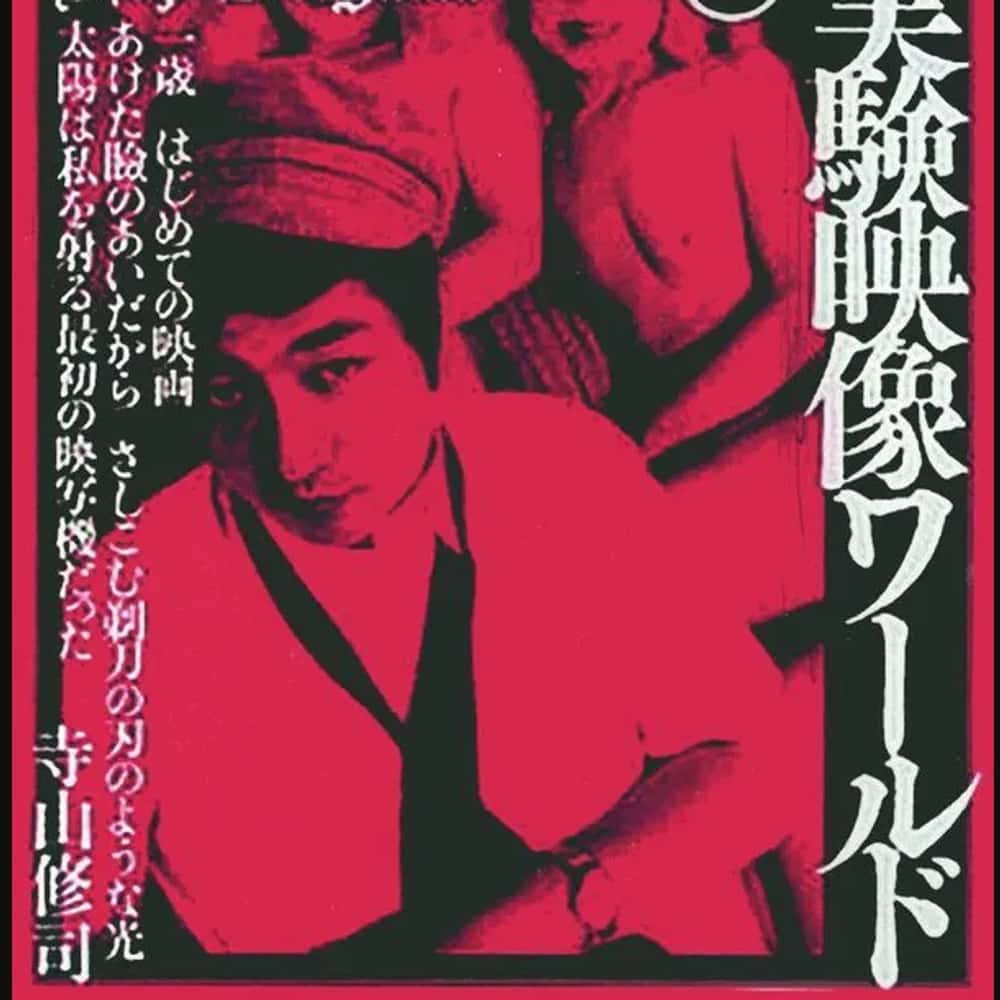
The Ultimate Showdown: ‘Battle Royale’
The Controversy:
Kinji Fukasaku’s dystopian thriller Battle Royale shows a future where the Japanese government forces junior high students to fight to the death on a remote island. Its intense violence featuring teenagers stirred up controversy and led to bans in several countries. The Japanese government even tried to ban both the film and the novel it was based on.
Despite all the drama, Battle Royale became a huge cultural hit in Japan and gained an international cult following. Director Quentin Tarantino has called it one of his favorite films, saying, “If there’s any movie that’s been made since I’ve been making movies that I wish I’d made, it’s that one.” The film’s themes and storyline have clearly influenced later works like The Hunger Games series.
What The Movie Is About:
42 9th graders are sent to a deserted island. They are given a map, food, and various weapons. An explosive collar is fitted around their neck. If they break a rule, the collar explodes. Their mission: kill each other and be the last one standing. The last survivor is allowed to leave the island. If there is more than one survivor, the collars explode and kill them all.
- Actors: Tatsuya Fujiwara, Aki Maeda, Taro Yamamoto, Masanobu Andô, Ko Shibasaki
- Released: 2000
- Directed by: Kinji Fukasaku
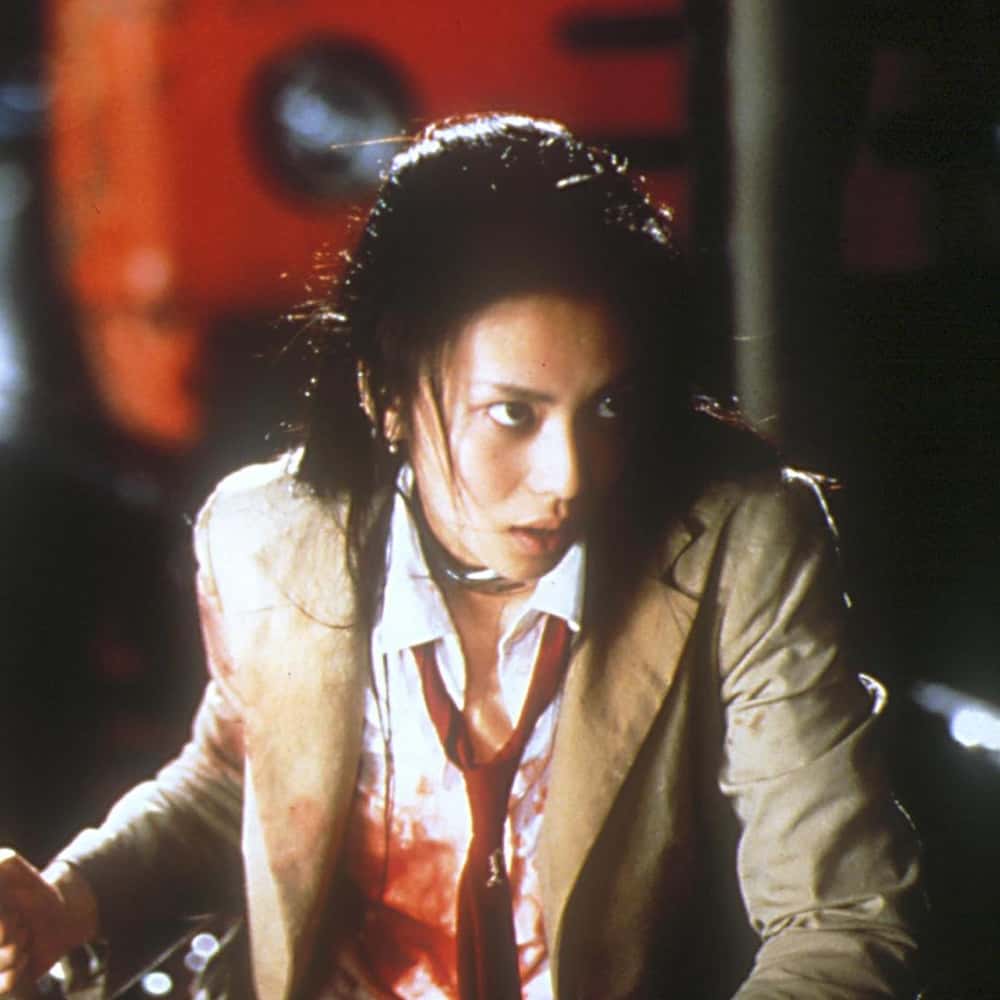
A Shocking Twist: ‘Audition’
The Controversy:
Takashi Miike’s psychological horror film Audition starts off like a romantic drama but quickly turns into one of the most disturbing horror films out there. It follows a widower who fakes a movie audition to find a new wife, only to choose a woman with dark intentions. The sudden shift in tone and the graphic torture scenes, especially the well-known “kiri-kiri-kiri” needle part, left audiences unnerved.
At the 2000 Rotterdam Film Festival, the film reportedly caused a record number of walkouts due to its intense content. Despite such reactions, Audition has been critically acclaimed and has had an impact on many Western horror directors, including Eli Roth and those behind the “torture porn” genre.
What The Movie Is About:
This disturbing Japanese thriller follows Aoyama (Ryo Ishibashi), a widower who decides to start dating again. Aided by a film-producer friend (Miyuki Matsuda), Aoyama uses auditions for a fake production to function as a dating service. When Aoyama becomes intrigued by the withdrawn, gorgeous Asami (Eihi Shiina), they begin a relationship. However, he begins to realize that Asami isn’t as reserved as she appears to be, leading to gradually increased tension and a harrowing climax.
- Actors: Ryo Ishibashi, Eihi Shiina, Jun Kunimura, Miyuki Matsuda, Ren Ôsugi
- Released: 1999
- Directed by: Takashi Miike
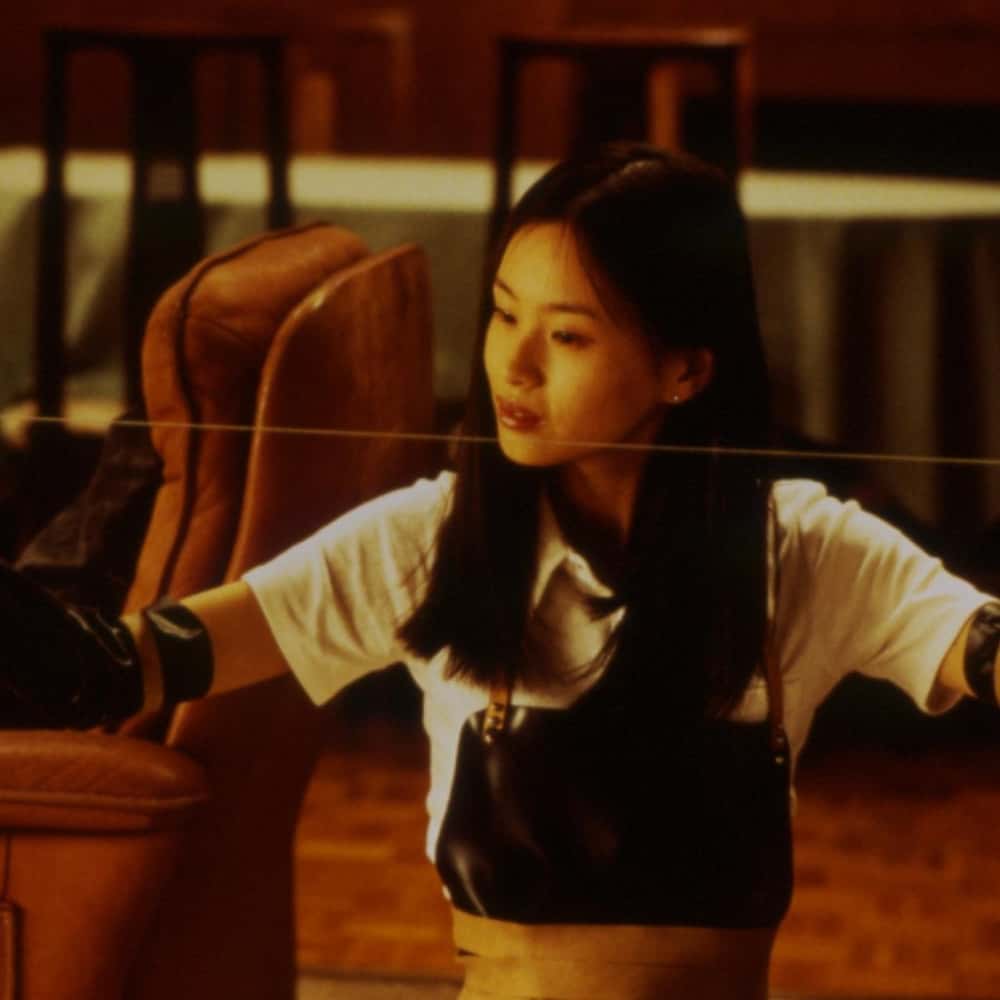
The Limits of Violence: ‘Ichi the Killer’
The Controversy:
Takashi Miike’s ultraviolent yakuza film Ichi the Killer might be the director’s most notorious work. At its Toronto International Film Festival premiere during the Midnight Madness program, they handed out vomit bags as a promotional stunt. The movie follows a sadomasochistic yakuza enforcer hunting for his boss’s killer in Tokyo’s criminal underworld.
Its graphic scenes of torture, sexual violence, and gore got it censored in several countries. British censors cut six minutes, focusing on scenes of violence against women, while Hong Kong censors chopped nearly 30 minutes from the film. Ichi the Killer is often credited with bringing “Japanese extreme cinema” to international attention and is still seen as a standout example of the genre.
What The Movie Is About:
A bloodthirsty hoodlum (Tadanobu Asano) sparks a series of violent reprisals after his boss is apparently taken by a mysterious assassin (Nao Ômori).
- Actors: Tadanobu Asano, Nao Ômori, Shin’ya Tsukamoto, Paulyn Sun, Sabu
- Released: 2001
- Directed by: Takashi Miike
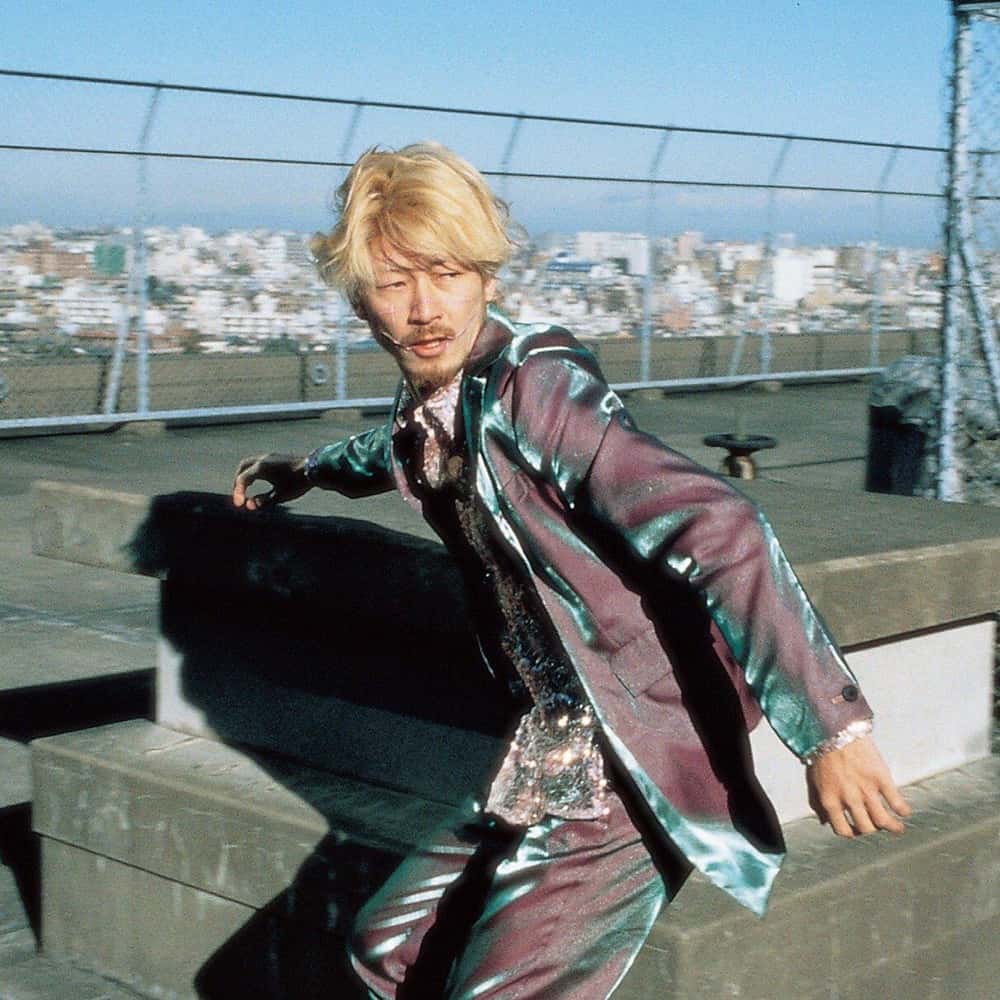
Controversial Imagery: ‘Horrors of Malformed Men’
The Controversy:
Teruo Ishii’s surreal horror film The Horrors of Malformed Men was effectively banned in Japan for decades, not so much for its graphic scenes, but because of its title. The Japanese title used the term “kyofu kikei ningen,” which can be translated to “disgusting deformed humans,” a phrase considered highly offensive to those with physical disabilities.
The film weaves together various stories by mystery writer Edogawa Rampo into a chilling tale about a doctor who creates an island full of physically altered humans. Despite its artistic qualities, Toei studio pulled it from circulation soon after its release to dodge controversy. It remained largely out of sight until its DVD release in 2007.
What The Movie Is About:
After escaping from an insane asylum, a medical student is lured to a sinister island ruled by a mad scientist.
- Actors: Teruo Yoshida, Yukie Kagawa, Teruko Yumi, Mitsuko Aoi, Michiko Kobata
- Released: 1969
- Directed by: Teruo Ishii
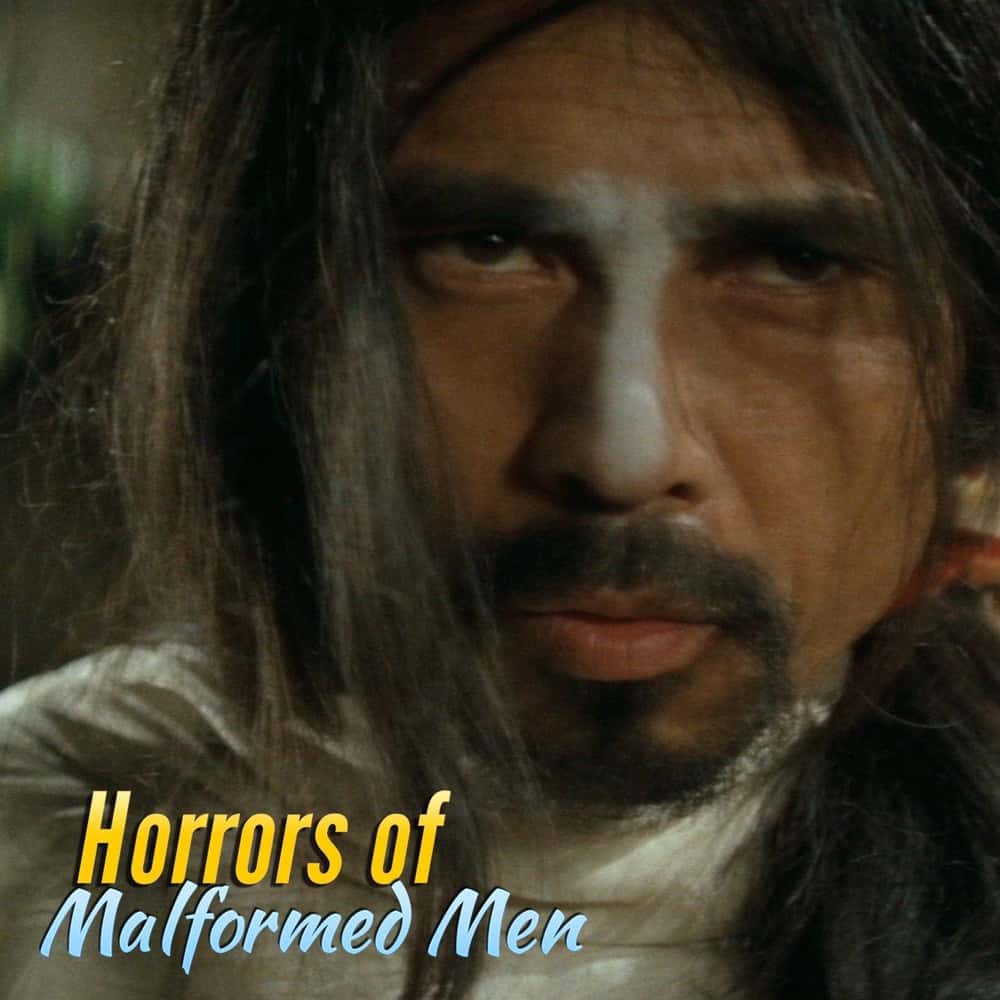
An Epic Critique of War: ‘The Human Condition’
The Controversy:
Masaki Kobayashi’s nine-and-a-half-hour epic The Human Condition, released in three parts between 1959 and 1961, is a powerful critique of Japan’s wartime actions and militarism. The film follows conscientious objector Kaji as he faces the horrors of war, from overseeing Chinese prisoners in a labor camp to becoming a soldier and eventually a Soviet prisoner of war.
Japanese studios initially turned down the project due to its critical view of Japan’s World War II actions. Director Kobayashi had to threaten to quit Shochiku studio before they agreed to fund it. Despite these hurdles, the film is now seen as a masterpiece of Japanese cinema, with British critic David Shipman calling it “unquestionably the greatest film ever made.”
What The Movie Is About:
The Human Condition is a Japanese epic film trilogy made between 1959 and 1961, based on the six-volume novel published from 1956 to 1958 by Junpei Gomikawa 五味川純平. It was directed by Masaki Kobayashi and stars Tatsuya Nakadai. The trilogy follows the life of Kaji, a Japanese pacifist and socialist, as he tries to survive in the totalitarian and oppressive world of World War II-era Japan. Altogether, the trilogy is 9 hours, 47 minutes long, not including intermissions.
- Actors: Tatsuya Nakadai, Michiyo Aratama
- Directed by: Masaki Kobayashi
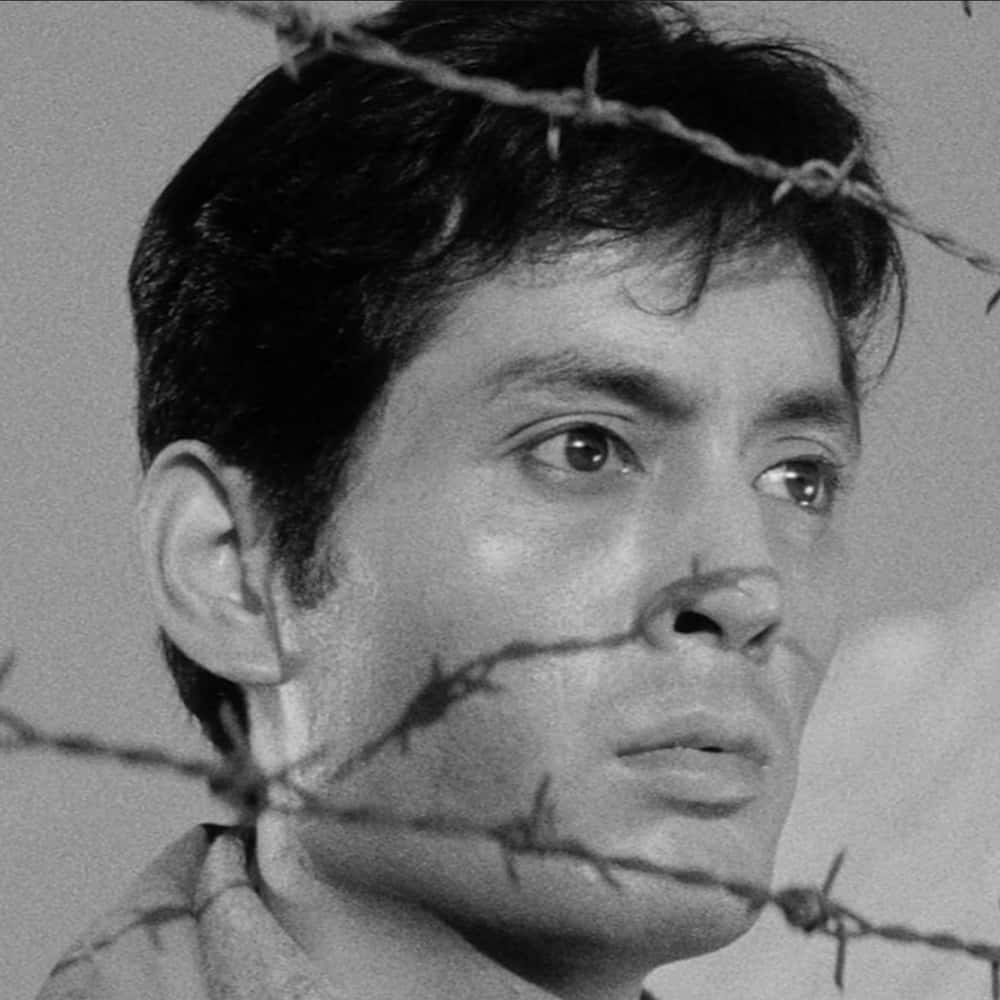
Historical Tensions at a Shrine: ‘Yasukuni’
The Controversy:
Li Ying’s documentary Yasukuni examines the controversial Shinto shrine that honors Japan’s men and women who died defending the Emperor’s honor, including convicted war criminals from World War II. The film follows 90-year-old swordsmith Naoji Kariya, who made ceremonial swords for Japanese troops during the war, and digs into the shrine’s complicated role in Japanese politics and historical memory.
Even though Li aimed for neutrality, the film faced major backlash from Japanese nationalists. It led to boycotts, protests, and even bomb threats against theaters that planned to show it. Some theaters ended up canceling screenings due to pressure from ultranationalist groups. The controversy highlighted Japan’s ongoing struggles to come to terms with its wartime past and the political sensitivities around historical memory.
What The Movie Is About:
Controversy surrounds Japanese officials as they honor the Yasukuni shrine.
- Released: 2007
- Directed by: Ying Li
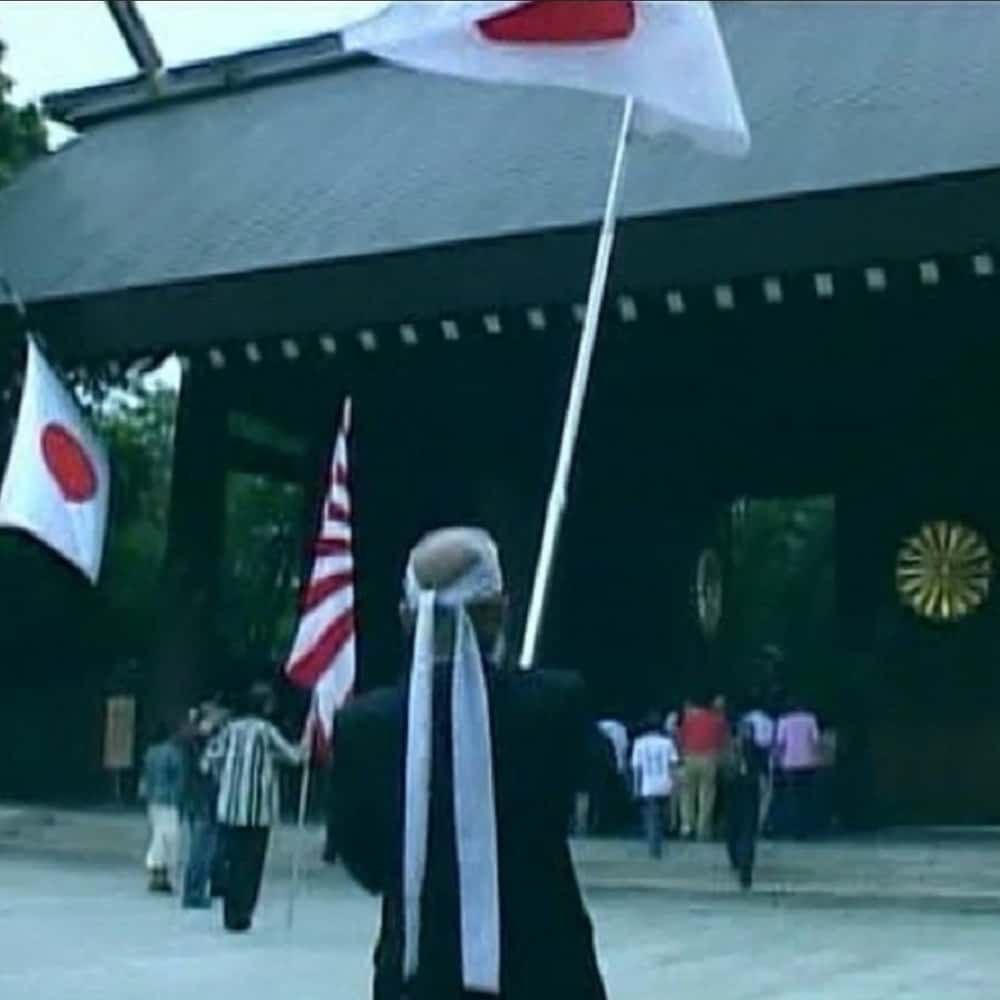
A Society Unraveled: ‘Suicide Club’
The Controversy:
Sion Sono’s unsettling horror film Suicide Club kicks off with a shocking scene where 54 schoolgirls commit mass suicide by jumping in front of a train. This intense opening sets the stage for a film that dives into themes like alienation, celebrity culture, and societal decay in modern Japan. The story follows detective Kuroda as he looks into a series of strange mass suicides happening across Tokyo.
The film stirred up controversy with its graphic violence, disturbing images, and unclear narrative. Sono has even said he thinks “almost all Japanese people hate” the film because of its provocative content. Despite all the buzz, Suicide Club helped establish Sono as a big name in Japanese extreme cinema and led to a sequel, Noriko’s Dinner Table.
What The Movie Is About:
Police officers investigate a string of mysterious suicides throughout Japan.
- Actors: Ryo Ishibashi, Masatoshi Nagase, Tamao Satô, Takashi Nomura, Rolly
- Released: 2001
- Directed by: Sion Sono
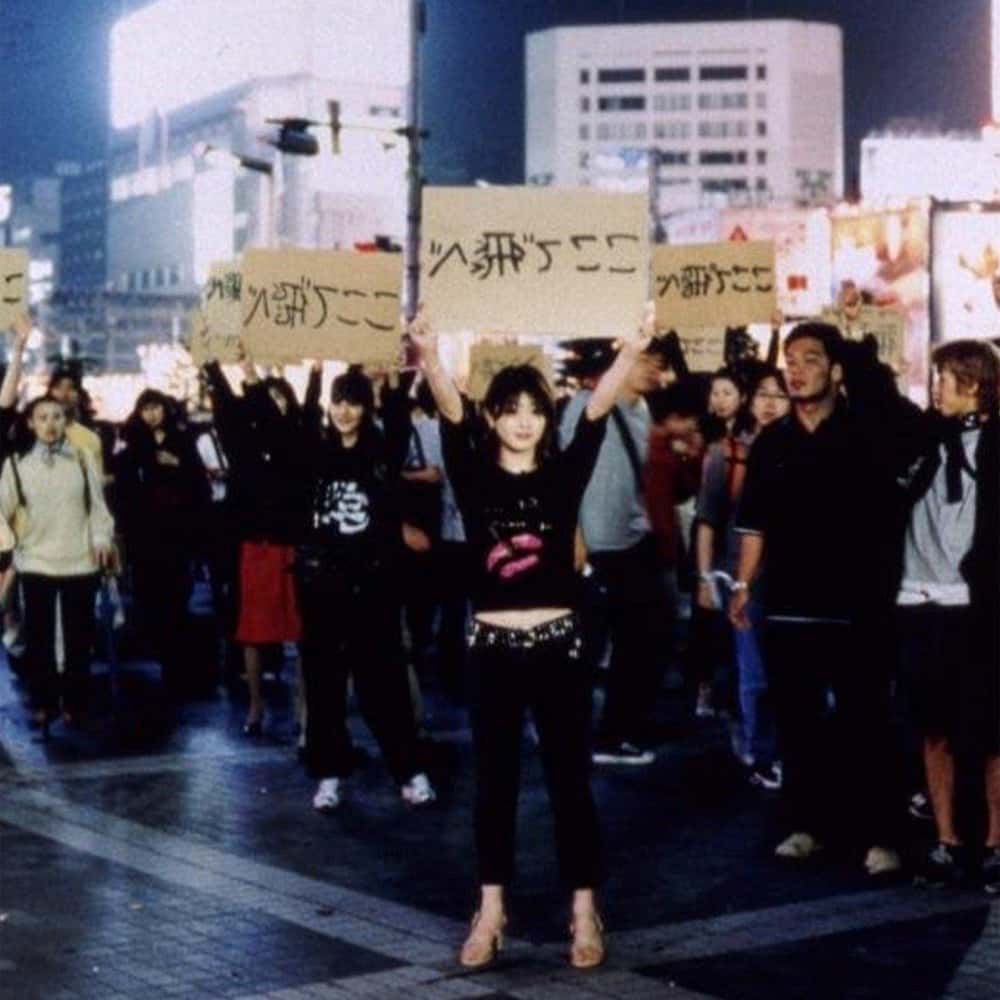
The Life and Death of a Controversial Figure: ‘Mishima: A Life in Four Chapters’
The Controversy:
Paul Schrader’s biographical film about the controversial Japanese novelist Yukio Mishima stirred up intense backlash in Japan, even though it was mainly an American production with Japanese dialogue and cast. The film delves into Mishima’s life and work, touching on his homosexuality and his infamous ritual suicide after a failed coup attempt in 1970.
The depiction of Mishima as homosexual angered Japanese far-right groups, who viewed him as an iconic figure. These extremists threatened violence against theaters set to screen the film, leading to its effective suppression in Japan. A planned Japanese premiere had to be canceled due to an alleged bomb threat. Mishima’s widow, who initially supported the production, later withdrew her support and called for a boycott.
What The Movie Is About:
Fact, fiction and dramatization illustrate events in the life of controversial author-militarist Yukio Mishima.
- Actors: Ken Ogata, Kenji Sawada, Toshiyuki Nagashima
- Released: 1985
- Directed by: Paul Schrader
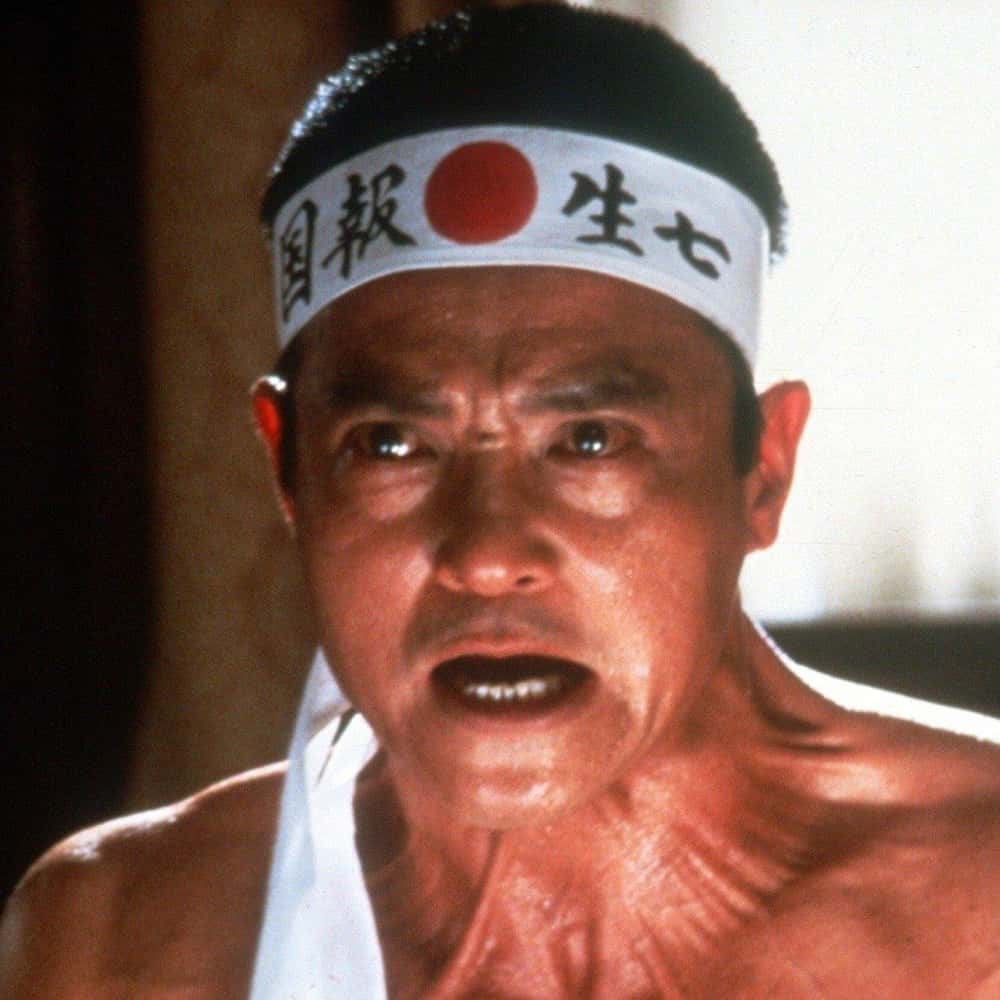
Political Unrest on Screen: ‘Night and Fog in Japan’
The Controversy:
Nagisa Oshima’s politically charged film Night and Fog in Japan was pulled from theaters by Shochiku studio after just three days. The film looks at the fractured Japanese leftist student movement through the story of a wedding between two former activists, using flashbacks to highlight their roles in protests against the controversial AMPO security treaty with the United States.
Released just four months after the treaty’s signing, during a time of intense political unrest in Japan, the film was abruptly removed following the assassination of socialist politician Inejiro Asanuma by a right-wing student. Shochiku pulled it out of fear that it might stir up the volatile political situation. In response to this censorship, Oshima left the studio in protest and went on to start his own independent production company.
What The Movie Is About:
Uninvited guests crash a former student radical’s wedding and accuse him, his bride and other guests of ignoring their political commitments.
- Actors: Miyuki Kuwano, Fumio Watanabe, Hiroshi Akutagawa, Shinko Ujiie, Akiko Koyama
- Released: 1960
- Directed by: Nagisa Ôshima
